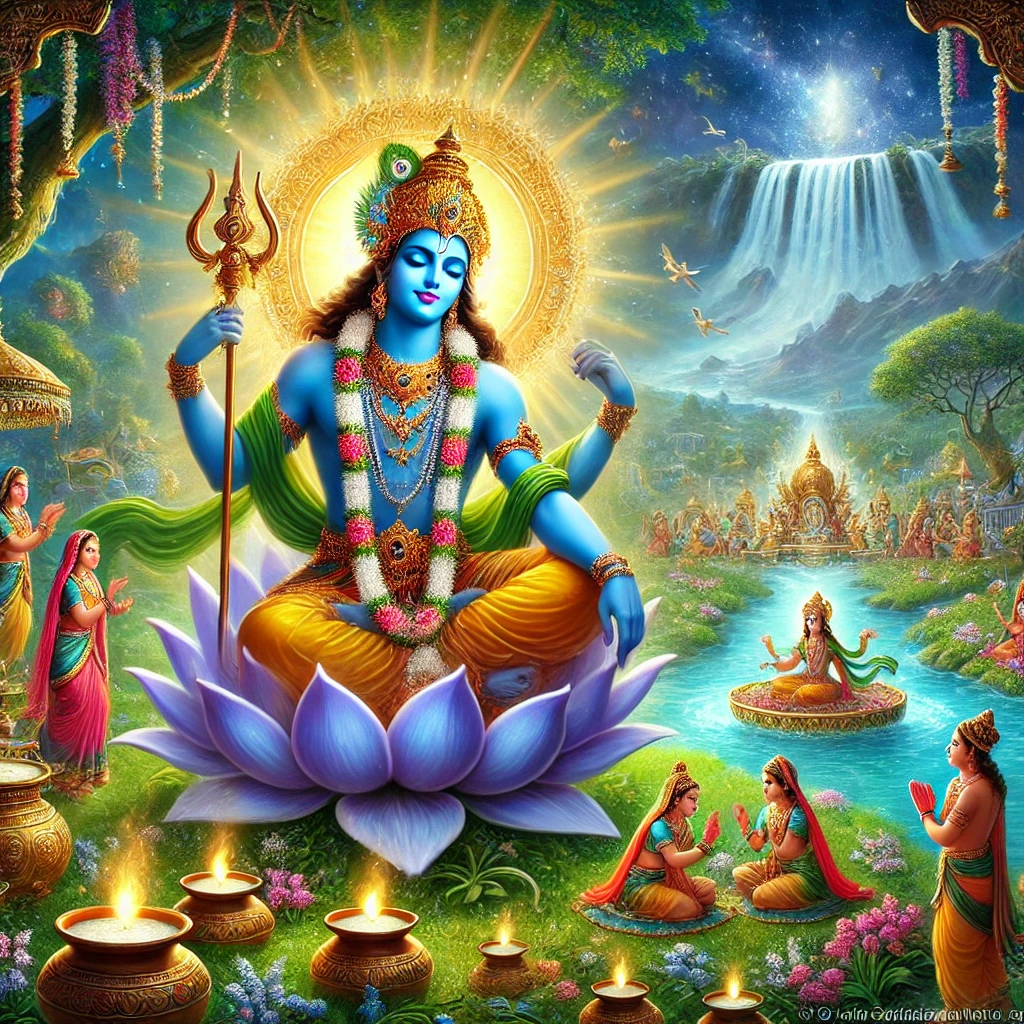Utthana Ekadashi, also known as Devutthana Ekadashi or Prabodhini Ekadashi, is celebrated on the 11th lunar day of Shukla Paksha (waxing moon) in the Hindu month of Kartik. This Ekadashi is particularly significant as it marks the awakening of Lord Vishnu from his cosmic slumber (Yoga Nidra), heralding the end of Chaturmas (the four-month period of spiritual austerity).
The Importance of Utthana Ekadashi
Utthana Ekadashi is deeply revered in the Vaishnava tradition, as it signifies a spiritual renewal and the beginning of auspicious activities. According to the scriptures, Lord Vishnu rests in Yoga Nidra on the day of Devshayani Ekadashi (Ashadha Shukla Ekadashi) and awakens on Utthana Ekadashi. This period is considered a time of introspection, devotion, and self-discipline.

Scriptural References and Stories
Utthana Ekadashi, also known as Prabodhini Ekadashi, is deeply rooted in the Vaishnava tradition and marks a pivotal event in the cosmic calendar. According to scriptures like the Skanda Purana and the Vishnu Purana, this day signifies the moment when Lord Vishnu awakens from his four-month-long cosmic rest (Yoga Nidra). During this period, known as Chaturmasya, Vishnu refrains from active engagement in worldly affairs, symbolizing introspection and spiritual pause.
On the day of Utthana Ekadashi, Lord Vishnu rises from his slumber in the Kshira Sagara (Ocean of Milk), reinitiating his divine activities to uphold dharma (cosmic order). His awakening is celebrated with rituals such as the Tulsi Vivah, symbolizing the divine union of Lord Vishnu and the sacred Tulsi plant. The event also marks the resumption of auspicious activities, including marriages and temple festivals, emphasizing renewal and spiritual growth.
The spiritual lesson of Utthana Ekadashi lies in awakening one’s consciousness, transitioning from spiritual dormancy to active devotion and service to God.
Rituals and Practices
- Fasting and Devotion: Devotees observe a fast from sunrise to sunrise, consuming only water or fruits if necessary. The fast is a means to purify the body and mind and is often accompanied by meditative chanting of the Lord’s holy names.
- Temple Visits: Temples dedicated to Lord Vishnu, particularly ISKCON temples, hold special prayers and discourses. The deity is adorned elaborately, and devotees participate in bhajans (devotional songs) and kirtans (musical prayers).
- Tulsi Worship: The Tulsi Vivah, the ceremonial wedding of Tulsi and Shaligram, is performed in many households and temples. Devotees decorate the Tulsi plant, offer sweets, and pray for divine blessings.
- Reading Scriptures: Sacred texts like the Bhagavad Gita and Srimad Bhagavatam are recited or read to deepen spiritual understanding and devotion.
The Spiritual Significance of Utthana Ekadashi
Utthana Ekadashi symbolizes the awakening of divine consciousness. It inspires devotees to emerge from the slumber of ignorance and actively pursue a life of devotion and dharma. The day is an opportunity to rededicate oneself to spiritual practices and align with the principles of righteousness.
The Padma Purana states that observing Utthana Ekadashi not only absolves sins but also multiplies the merit of pious deeds performed during the Chaturmas period. It’s believed that worshipping Lord Vishnu on this day bestows blessings of health, prosperity, and spiritual upliftment.
Conclusion: A Day of Divine Connection
Utthana Ekadashi is more than just a day of fasting and rituals; it’s a profound opportunity for spiritual awakening and renewal. It serves as a reminder of the cyclical nature of life and the importance of devotion and discipline in overcoming material distractions. By observing Utthana Ekadashi with sincerity, devotees reconnect with their spiritual essence and draw closer to the grace of Lord Vishnu.
May this Utthana Ekadashi bring divine blessings and spiritual fulfillment to all who observe it. Hare Krishna!